Live More Frugally – Getting Started (Podcast Episode 1)
This website may earn commissions from purchases made through links in this post.
Looking to live more frugally, but not sure how to get started? This week’s podcast episode shares the best frugal habit to start with.
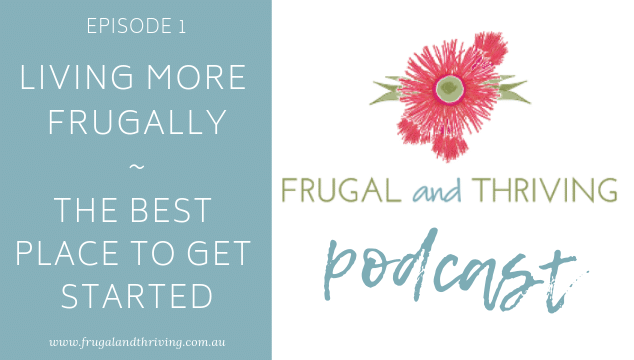
How do you get started with frugal living? What changes do you make to save money and live within a budget? And how do you make those changes long-lasting without feeling miserly?
There and so many lifestyle changes that you can make, that it gets overwhelming. So this is my take on the best place to get started.
Listen to the podcast or continue reading below.
Links to the Resources mentioned in the podcast
Of all the frugal habits you can foster, there’s one, in particular, that will save you money and it has another big benefit too.
In fact, if there is only one frugal habit that you ever adopt, it would be this:
The habit of minimising waste.
Why start with minimising waste?
Because making big lifestyle changes can be hard and slashing spending can feel like deprivation when you’re starting your frugal journey.
And when you feel deprived it’s hard to stay motivated and it’s easy to go back to old familiar habits.
But reducing waste doesn’t feel like deprivation because you’re not cutting things from your life. But you ARE still saving money. And these wins will keep you motivated over the long run and encourage you to make further changes.
Another reason to start with waste reduction is that we tend to waste a lot, in a lot of different areas in our lives, so reducing waste can actually add up to some big savings. In this article, I’m going to cover the big three areas of waste that have the biggest impact on your budget.
Back to that other big benefit.
As you will have already worked out, reducing waste doesn’t just save you money, it’s good for the environment, which is really important too.
Reduce Food Waste
Food makes up an incredible 40% of our household waste.
According to the Australian Government’s Department of Environment and Energy website, Australian consumers throw away around 3.1 million tonnes of edible food a year.
For the average Australian household, that translates to around 20% of food purchased. That’s like buying five bags of groceries and taking one of those bags and chucking it straight in the bin. Every single week.
And according to the Government’s National Food Waste Strategy Document, food waste costs Australian households between $2,200 and $3,800 a year. Which is pretty massive. That’s a holiday. It’s a whole extra month’s mortgage repayment or a month’s worth of rent going in the bin.
Reducing food waste, will not only almost halve your waste, which is good for the environment, it can also add up to significant savings in the budget, thousands of dollars even, which is why it’s an excellent place to start.
So how do you reduce food waste?
The key is to “buy only what you will eat and eat what you buy.”
Buy what you will eat, eat what you buy.
The most effective strategy for doing this is meal planning. Planning out your meals for the week, writing a shopping list of the things you’ll need, buying only what’s on your list and then eating the food you buy.
Another strategy is to plan for leftovers. We eat leftovers for lunches, that saves us money on lunches as well as reducing food waste. And I prefer leftover stir-fry to a soggy sandwich any day.
You can also freeze leftovers, which saves you time later because that’s a whole meal you don’t have to cook, you can repurpose leftovers or plan meals like a vegetable curry that will use up all the bits and bobs in your crisper before they go limp.
Reducing food waste can save you a tonne of money. Multiply your savings with the next tip.
Reduce Disposables
The second way to reduce waste is by switching from disposable products to reusable products.
If you think of how our grandparents lived, they would BUY something once and use it over and over until it wore out. What we do now is the opposite: we USE something once and buy it over and over. Which is kind of crazy when you think about it – not just in terms of the amount of landfill we create, but because it wastes so much money unnecessarily.
How do you switch from disposables? Here’s a biggie that we need to tackle first.
If you currently buy bottled water, then this switch is going to save you a heap of money.
The average person in the US buys around 3 bottles of water a week. At $3 a bottle, which is how much you’ll pay in Australia at your local servo or convenience store, that adds up to $468 a year.
A reusable water bottle is a great investment and will save you money not just this year, but for years to come. And if you don’t like the taste of tap water, a good water filter can fix that.
But there are a lot of other disposable products in the home that can be switched for reusable ones. And while the savings won’t be as dramatic, each switch can add up.
Cling wrap, for example, can be exchanged with reusable containers, recycled jars, and even an upturned bowl covering food on a plate, or a plate covering food in a bowl. You don’t have to go out and buy fancy containers. Use what you’ve already got at home.
Disposable dishcloths can be exchanged for reusable dishcloths that you just throw in the wash with your clothes. Paper towel can be exchanged with cleaning rags and tea towels and even a cake rack for draining things like bacon instead of draining it on paper towel.
There are dozens of potential disposable products in our homes that can be easily replaced with reusable options. So when you come across a disposable product, consider ways you can switch to reusable. Every time you switch, you’re saving money, not just this month or this year but for many years to come.
Reduce Energy Waste
The third area of waste to look at is energy waste. There are a lot of ways to reduce energy consumption, but one of the easiest ways to get started is by not wasting energy.
According to a study in the UK, households waste between 9 and 16 per cent of the energy.
The average energy cost in Australia is around $1,600 a year. That’s according to a survey done by Canstar.
If 9 to 16 per cent of that bill is wasted, then that’s an extra $144 to $256 that you could save a year without much effort.
In practical terms, That means turning lights and ceiling fans off when you’re not in a room. It means not running the air con or heating when nobody is at home or not heating empty rooms. It means turning off TVs and computers when no one is using them. It means, turning electronics off at the wall instead of leaving them on standby. It also means only running the dishwasher or the washing machine when you have a full load.
So to recap, the best place to start when changing habits to more frugal ones is to first address waste. By reducing waste in the home, especially in these big three areas of food waste, disposables and energy waste, the savings can really add up over the course of the year. Small changes are easy to implement, and when you see results, they can motivate you to make bigger changes that save you more money but also improve the quality of our lives.
Resources and Links
Links and Resources mentioned in the podcast.
Food Waste
- Meal Planning eBook
- Food Waste Fact Sheet from the Australian Department of Environment and Energy
- National Food Waste Strategy (pdf)
Disposables
- Sustainable Living on a Budget
- 10 Ways to Ditch Disposables in the Kitchen
- Using Reusable Dishcloths
- Cling Wrap Alternatives
- Using a Menstrual Cup
Energy Waste
Subscribe to the podcast using your favourite Podcasting service.

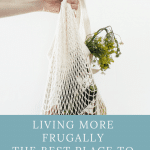
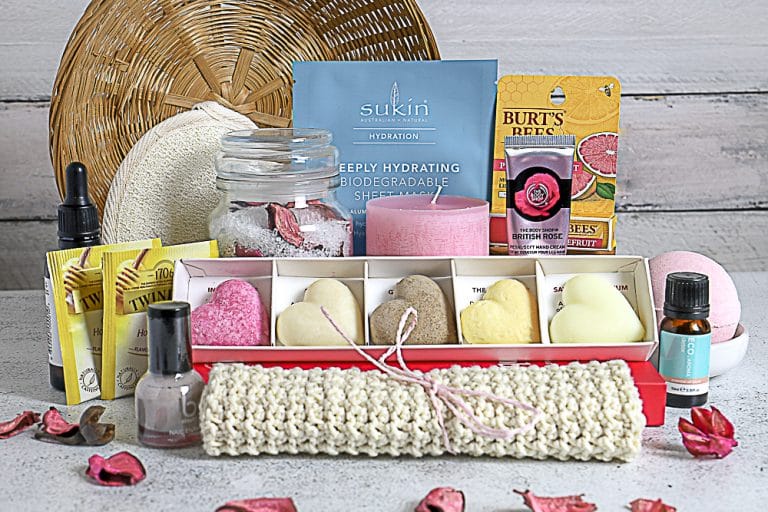
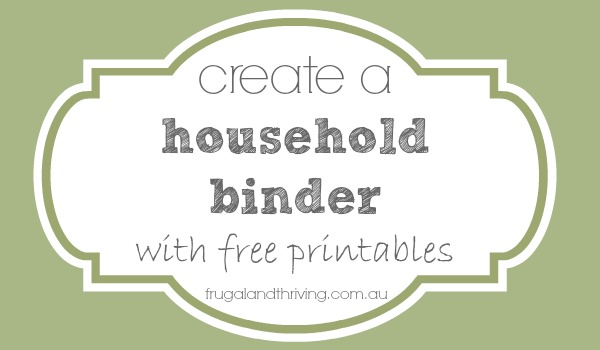

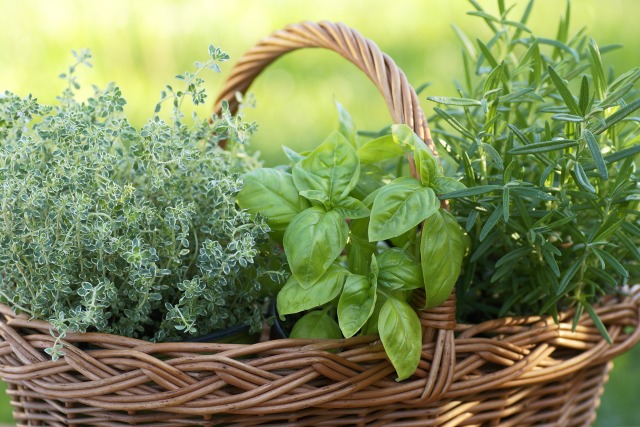

Hi. This is the first pod cast I have ever listend to in my life. I just wanted to let you know I enjoyed it and it made me think what small things I could do to minimize waste in my home
I enjoyed the podcast. Good to hear the basics again as it encouraged me to make my first dishcloths using online crochet tutorial and ditch the disposal scrubbers. I am looking forward to further episodes.
Many Thanks
Bernie
Hi Melissa,
Thank you for starting the podcast. I don’t always have time to read your blog but listening to the podcast in the car as I drive my children to various after school activities is a real treat!
I have been following your blog/page for a number of years now and love the simplicity of it, the straight forward advice and the easy to navigate website.
Keep up the brilliant work!!!
Hi Vicky, thanks, glad you like it. Podcasts are great for listening on the go :).